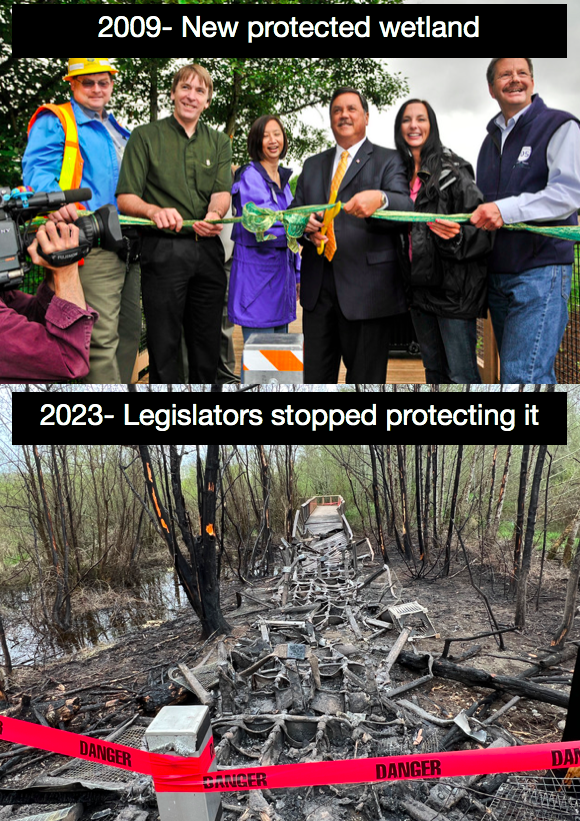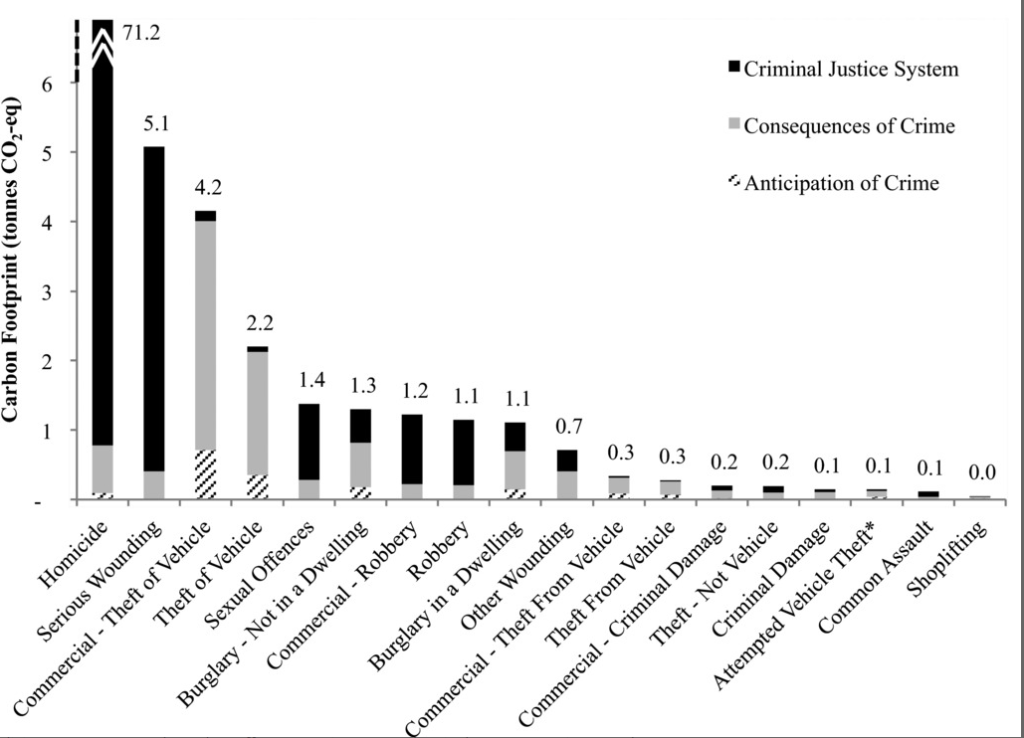
The ribbons in the before and after photos are in the same place. For background on these photos see my previous blog entry here.
Like many in our state, I’m finding it increasingly difficult to reconcile policies I’ve always supported regarding environmental stewardship and clean air and water, with the new trend of enabling offenders of environmental and other crimes. Our most sensitive wetlands and ecosystems are increasingly polluted and ruined without consequences. With King County Transfer Stations now charging $181 per ton to dump garbage with a $30 minimum just to empty a waste basket, and seemingly no consequence for littering any more, it’s not just the struggling unhoused putting garbage and pollutants in our environment.
One can not advocate for anarchy and still claim to be protecting the environment. All the laws protecting air, water, soil, plants and wildlife are meaningless without adequate police staffing and tools to enforce them and meaningful accountability for violators.
And it’s incongruent for anyone to claim to be a “climate activist” while enabling home break-ins, car thefts, and vandalism. All of these crimes have enormous environmental consequences, adding significantly to carbon in the atmosphere, as essential property is replaced and new protective measures are taken by property owners.
In 2022 my catalytic converter was stolen off my van in my driveway, along with thousands of other catalytic converters stolen from Washington automobiles that year. State legislators had crafted a law, still in place, that ensures anyone stealing catalytic converters won’t be pursued by police if they drive away. Our state is now the worst for thefts of catalytic converters, leading to tons of extra mining of rare earth minerals and an unknown number of vehicles driving around without the proper pollution control equipment. We’re all breathing more unburned hydrocarbon, nitrous oxide, and carbon monoxide because of this legislation.
In 2021 the city of Seattle considered implementing a crime-of-need defense, that would have made it okay for people to steal from a neighbor if they needed money for rent, perhaps taking a contractor’s tools and pawning them for cash. Fortunately this law did not pass, but the flawed reasoning that brought it to the table is still held by many local lawmakers including some in Olympia. The obvious way for a compassionate society to help someone trying to cover their rent when they can’t afford it is to extend assistance in the form of a voucher. If someone can’t afford food, we should give them access to a food bank. Enabling them to steal from a neighbor diminishes their self-esteem, gets them about three cents on the dollar for everything stolen, and puts the theft victim also at risk of needing rental assistance. Furthermore on a large scale it is environmentally disastrous, as the replacement of essential tools and repair of property has enormous costs.
Washington has by far the highest rate of stolen cars in the US, with an overall number of thefts that only trails California and Texas because those states are many times our size. Renton is seeing up to five auto thefts per day. The theft of a single car puts 4.2 metric tons of carbon into the atmosphere, so Renton car thefts are currently contributing 21 METRIC TONS per day of carbon to the climate change balance sheet. Anyone who is okay with this, who enables this by promoting lax law enforcement, is NOT an environmental activist.
The average home break-in dumps about the same amount of carbon into the atmosphere as driving a car 3000 miles after you figure in the replacement of property, the repair work, and criminal justice implications. A European study published in the Journal of Industrial Ecology estimates the carbon footprint of this and other crimes in one of the few studies on this topic. While some of the carbon footprint is produced by the criminal justice system itself, most of the criminal justice carbon footprint impacts come from cases of homicide, assault, sex offenses, and robbery; these crimes must be punished meaningfully to prevent vigilante justice (more crimes) and mayhem in society.

Figure from “Addressing the Carbon-Crime Blind Spot: A Carbon Footprint Approach” by Helen Skudder et al
In summary, if one cares about the protecting the environment and preventing climate change, they should care about law enforcement– because you can’t accomplish one without the other.

Recent Comments